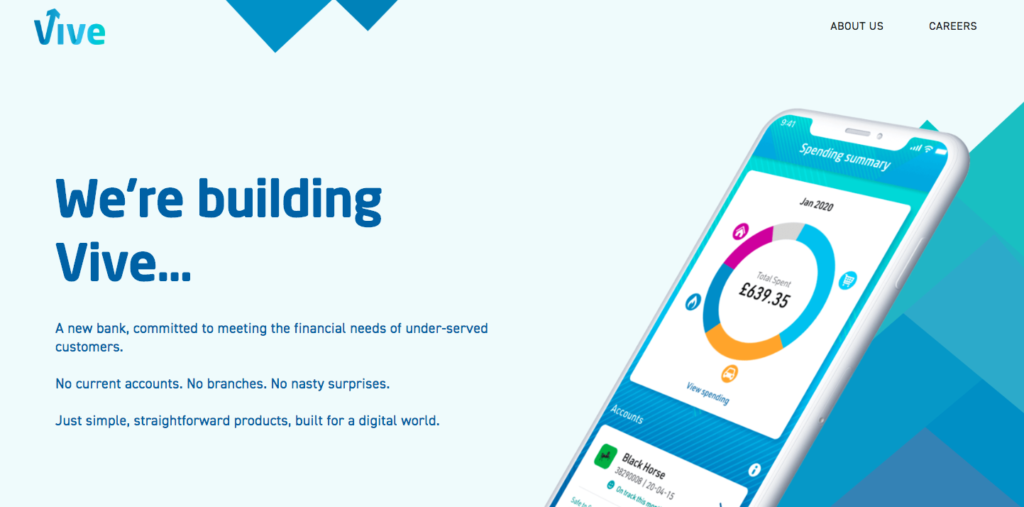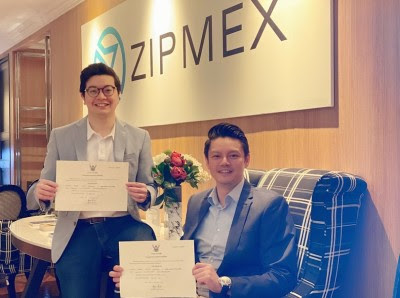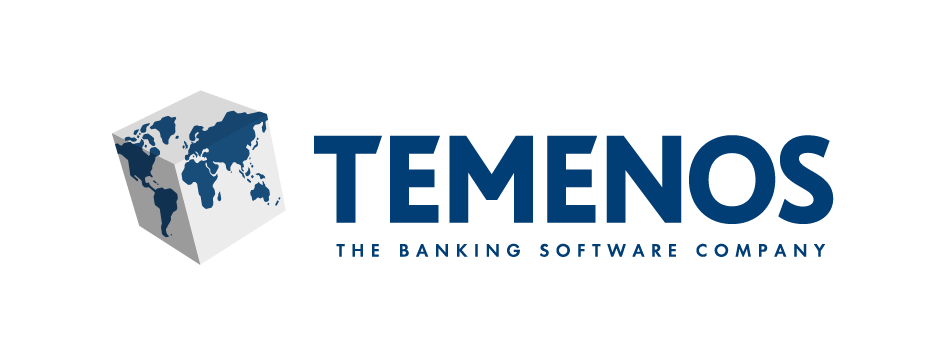Published
- 02:00 am

Taking stock of the identity verification landscape, Keith McGill, Head of Fraud & ID at Equifax, expects rapid adoption of biometrics in 2020 as it enters the mainstream:
“The biometrics industry has been at a crossroads, with verification technology solutions until now viewed as a roadmap item for many businesses, but as it enters the mainstream we expect adoption rates to accelerate.
“Research by Cifas* last year pointed to a rise in ID fraud, and this trend is still on the up. In the current escalating threat environment it’s increasingly easy for fraudsters to operate and fly below the radar, and this is where technology has a constructive role to play.
“As the strongest form of authentication, the benefits of biometric solutions are two-fold, stemming the tide of third-party fraud losses and offering a sleeker customer experience. Brits are increasingly on board, with nearly three quarters happy to do away with pins and passwords to access their mobile phones in favour of a biometric solution**. The challenge for businesses is crafting optimal deployment routes to harness this potential.
“Biometrics also have a central role to play in the multi-factor Strong Customer Authentication (SCA) requirements coming into force in 2021, which add an extra layer of security to payment processes, such as a fingerprint verifier. The hurdle for most retailers is finding ways to offset the additional friction and avoid ‘abandoned’ online shopping baskets. The market is finding solutions and it’s vital that merchants achieve alignment in time for a swift transition to these more robust requirements.
“With the risk landscape more pronounced than ever, there’s no doubt that businesses must take increasing precautions to protect consumers, so expect biometrics to have a more hands-on role in the fight against identity theft.”
Related News

Andrew Bud
Founder & CEO at iProov
I think there are few more exciting sectors than biometrics and digital identity in 2020, and it's a privilege to be in the midst of it all. see more
- 07:00 am

New UK digital bank Vive has received a banking licence with restriction from the Bank of England.
The new bank will be offering personal loans and a fixed-rate savings account and launching with with an Open Banking-based money management app.
Vive is aiming to capture the underserved market of customers who struggle to access affordable credit.
Receiving a banking licence with restriction - also known as 'mobilisation' - is the first step towards a new bank becoming fully operational, in which it can start to do business but with certain limitations such as the amount taken in deposits.
Vive will be expected to be in mobilisation for no more than 12 months before it proceeds to full authorisation.
CEO Nick Anthony describes the awarding of its licence as "a significant milestone" to the challenger's ambitions to "provide simple, straightforward products, built for a digital world."
“Vive is designed for people who want greater choice than that offered by their current bank," Anthony adds.
"Our prospective customers value service, speed and transparency but also want the best rates available to them."
It was announced in September 2019 that Vive is using Starling Bank partner Bottomline Technologies for its faster payment processing.
Vive is targeting a full launch during Q2 of 2020 and is at present inviting people to beta test its product.
Related News
- 07:00 am

French neobank Qonto has raised $115 million in Series C funding from Tencent and DST Global to double down on existing markets, develop new features to tailor its products to specific markets, and grow staff numbers from 200 to 300 during 2020.
The online-only bank for SMEs, freelancers, and startups offers expense management, company card issuing and cash flow services to 65,000 accounts internationally. Earlier this month, the bank announced plans to open in Germany, following previous launches in Italy and Spain.
In 2019, Qonto managed transactions worth €10 billion, compared to €3.5 billion in the prior year.
Existing investors Valar and Alven joined Tencent and DST in today’s funding round. TransferWise co-founder Taavet Hinrikus and Adyen CFO Ingo Uytdehaage also chipped in.
Related News
- 04:00 am

Six of the world's central banks have come together to share their knowledge and experiences in assessing the potential cases for central bank digital currency (CBDC) in their home jurisdictions.
The banks have been spurred into action by the ongoing emergence of private sector digital currencies, such as Facebook's Libra, and the threat posed to monetary policy and financial stability.
The group, which will include senior representatives of the participating institutions, will be co-chaired by Benoît Cœuré, head of the BIS Innovation Hub, and Jon Cunliffe, deputy governor of the Bank of England and chair of the Committee on Payments and Market Infrastructures.
Former ECB board member Coeure in September described the arrival of Facebook's putative cryptocurrency Libra as a "wake up call" for central banks, and called for public authorities to step up co-operation on the development of CBDCs.
"Much in this spirit, the ECB and the Bank of Japan have already joined forces to examine the possible use of distributed ledger technology in financial market infrastructures," he said at the time. "The next natural step would be for global central banks to join forces and jointly investigate the feasibility of CBDCs based on common technical standards."
Related News
- 08:00 am

Flutterwave, a payments startup operating in Africa, is looking to expand across the continent after closing a $35 million funding round and securing partnerships with Visa and WorldPay.
The company helps merchants accept payments both online and at the point-of-sale through a host of methods, including cards, mobile money and bank transfers.
Flutterwave is now the African payment provider for Worldpay clients around the world. Meanwhile, the Visa tie-up means Flutterwave can issue physical and virtual cards and process payments using the US giant's networks.
The latest funding will be used to move into new markets in Francophone Africa as well as into new business areas.
"We don’t just want to be a payment technology company, we have sector expertise around education, travel, gaming, e-commerce, fintech companies. They all use our expertise,” CEO Olugbenga Agboola told TechCrunch.
Last year Visa made a $200 million stake in another Nigerian payments player, Interswitch. It also recently partnered MFS Africa to simplify remittances and expand global e-commerce across the continent.
Related News
- 06:00 am

Asian cryptocurrency exchange platform, Zipmex, has gained the license to provide digital assets and exchange services in Thailand, following a 12-month wait.
Headquartered in Singapore, the trading platform currently operates in Indonesia and Australia, standing at a current valuation of $18 million after having raised $5 million to date. The bitcoin trading license follows Zipmex's $3 million pre-Series A funding round just last September, led by Infinity Blockchain Holdings.
Zipmex Expands Operations into Thailand, Heating Up Competition
Following reports that only four out of a total of 20 cryptocurrency firms were granted the same license in early 2020, Zipmex now joins the growing list of firms operating in Thailand. The other four newly licensed firms are Bitcoin Exchange, Bitkub Online, Satang Corporation, and Huobi Thailand.
At the same time, it should be noted that two other firms - Cash2coin and Southeast Asia Digital Exchange - were rejected from their applications , due to "inconsistent'' Know-Your-Customer (KYC) and Anti-Money Laundering processes.
Ever since Thailand's SEC began regulating under its Emergency Decree in Digital Asset Business B.E. 2561, only a few firms have been granted the green light following its prudent regulatory requirements.
Having begun the process early in 2019, Zipmex had to meet several stringent conditions prior to receiving the green light from Thailand's Ministry of Finance and SEC. One of them necessitated a shareholder equity of at least $1.6 million (approximately 50 million baht).
Attaining the regulatory nod from Thailand's Securities and Exchange Commission (SEC) puts the young Asian cryptocurrency firm on the global map, adding credibility to their remarkable growth in present time.
Nothing short of a major achievement for the young cryptocurrency platform, Co-founder of Zipmex and CEO of the exchange's Thailand unit expressed:
"Being licensed and regulated by the SEC was always our main priority as we believe that being a regulated entity will help provide trust to newcomers looking to enter the digital assets market."
Growing Popularity of Cryptocurrency in Southeast Asia
The market for cryptocurrency trading and virtual assets is growing markedly in the Southeast Asia region, with Thailand as one of the first few countries to enact cryptocurrency legislations .
Thailand has made significant progress in a bid to encourage more cryptocurrency trading firms to begin operating in the country. In March 2019, Thailand began development of its own digital asset platform and the SEC approved the country's first Initial Coin Offering (ICO) portal .
Following suit, the Philippines recently issued a regulatory framework to boost investor protection, on top of regulating the acquisition of crypto assets in the country. Likewise, one of Singapore's bigger food court operators, Kopitiam, began accepting payments in bitcoin and other cryptocurrencies.
The pivot to digital assets indicates the growing interest and movement in the crypto space in the Southeast Asia region. All of these developments are signals to trading exchange platforms, like Zipmex, the emergence and growth of a highly competitive marketspace.
Related News
- 01:00 am

Ignite Sales, Inc., the financial industry leader in customer engagement technology, announced the company experienced an impressive year in 2019 in terms of growth, industry recognition, and product enhancements.
As the financial industry focuses more intently on technology to drive outstanding customer engagement, financial institutions are recognizing that Ignite Sales’ highly developed and proven technology empowers bankers and their customers to easily discover and meet financial needs.
The company’s leading-edge Customer Engagement Platform, Ignite Neuro, continues to see rapid adoption by leading banks and credit unions across the U.S., with implementations in branches by new clients exceeding 2,900. This technology provides customized, customer-facing guided conversations intended to help bankers and customers better understand life circumstances and needs. Ignite Neuro then analyzes those needs across the institution’s entire suite of products to serve up highly accurate recommendations.
As a result, product adoption rates are likely to grow by more than 100 percent, and customer loyalty is extended by as much as two years for every engaged customer or member, new and current. In fact, financial institutions using Ignite’s customer engagement platform have seen customer satisfaction increase by nearly 40 percent. Because of the success of its products, Ignite was named an award finalist by The AIconics, the world-renowned awards celebrating the drive, innovation, and hard work in the international AI community.
“We have a propensity to embrace new technology, especially one that improves our sales process and makes employees’ jobs easier,” said Dan Westhues, Executive Vice President and Chief Marketing Officer of Central Bank, one of Ignite’s partners. “Ignite’s solutions were made with the bank’s sales team in mind and truly provide that extra element to drive meaningful conversations. Central Bank has enjoyed partnering with Ignite to achieve more focused conversations to help customers reach the endgame faster.”
To facilitate Ignite’s growth in 2019, the company hired two key players. Kelly Schilling joined Ignite as SVP, bringing seasoned relationships to the team. Schilling is responsible for driving new business with enterprise customers. Ignite also hired credit union expert Whitney Loe as Director of Business Development for Credit Unions. Loe has helped Ignite expand its business development within the financial industry, specifically in the credit union space.
“We are thrilled to empower banks and credit unions with greatly enhanced capabilities to improve the financial wellness of individual consumers and small businesses,” said George Noga, Ignite Sales CEO. “As our company continues to achieve rapid growth, it is very important for us to always provide the best technology, most insightful analytics and experienced professional guidance to all of our clients working to attract and retain customers by deepening relationships and providing ongoing value. We look forward to seeing where our strong momentum will take Ignite in 2020.”
Related News
- 03:00 am

Computop, a leading global payment processor, today announced that it will be exhibiting at Euroshop, the retail trade fair in Dusseldorf, Germany (February 16-20). The company will be showcasing its new, Android-based card terminal, Computop Next A920, providing demonstrations for visitors to the event.
Also on display on the stand (Hall 6, E24) will be Computop’s biometric-based authentication solution, which allows retailers to offer the very latest in log-in and secure payment processing using fingerprint, face scan or voice recognition, and ensure they are fully compliant with SCA requirements.
Omnichannel will be a strong focus area of the exhibition, and Computop will show how it’s Paygate payment solution supports seamless integrated payment processes, online, offline and on mobile. Demonstrations will show how retailer data, regardless of the sales channel, is stored in a central database, providing a clear overview of all transactions and analyses in one place.
Computop’s Partner Relationship Manager, Moritz Baer, will be presenting ‘From point of sale to point of service’ on the Omnichannel stage on the 19th February. He will make reference to how the Computop Next A920 can help retailers transform their checkout into a service station, to generate additional turnover and will also talk about how typical POS payment mentods can be integrated into real omnichannel solutions.
Related News
- 01:00 am

Temenos (SIX: TEMN), the banking software company, today launches a front-to-back banking software as a service designed uniquely for the US market – with pre-integrated U.S. banking products and services designed to deliver an outstanding customer experience. Leveraging the power of its Temenos Infinity and Temenos Transact banking products built on its modern cloud-native, cloud-agnostic and API-first technology, Temenos has developed the next-generation SaaS product, enabling new digital banks to launch in the US within 90 days, and grow their business rapidly.
According to a recent Economist Intelligence Unit study, challenger banks - whether domestic startups or overseas brands that are now expanding their footprint - are making their presence felt in North America. The study also found that the number of banks choosing to develop new greenfield initiatives in the region has increased from 13% in 2018 to 29% in 2019, coming closer to the worldwide average of 36%. Temenos U.S. SaaS product is ideal for neo and digital banks in the US seeking to dramatically reduce their time to market, operational complexity and cost.
The Temenos U.S. SaaS offering provides new digital banks with a superior omnichannel front-to-back solution that delivers fully configured banking products and services, including support for conversational interfaces, artificial intelligence, augmented reality, and wearable technologies. This gives an exceptional customer experience that allows digital banks to open new accounts seamlessly through all digital channels. Temenos US SaaS product allows new digital banks to come to market quickly, acquire customers fast, reduce customer onboarding time, and grow share of wallet and revenues fast. Onboarding new customers is seamless and frictionless – and can be completed in a matter of minutes.
The solution is highly parameterized, allowing banks to rapidly configure and launch innovative products and services. In a market where a differentiated user experience is critical to success, banks can choose to customize Temenos’ customer-facing applications based on its class-leading multi-experience platform or build their own by connecting to Temenos’ extensive catalogue of functionally rich open APIs.
Additionally, Temenos’ U.S. SaaS platform provides access to pre-integrated and packaged fintechs on Temenos MarketPlace, ranging from ID verification and e-signature, to live chat and Personal Financial Management (PFM) services, allowing new digital banks to create innovative offerings at speed.
The Temenos product has built-in U.S. regulatory compliance and is fully integrated with the U.S. banking landscape via its catalogue of third-party interfaces and connectors. Temenos SaaS cloud deployment provides cost and scalability benefits with high security and availability measures. Accessing the solution through a pay-as-you-go subscription model, banks will pay only for what they use with the price scaling as business grows. The solution is continuously deployed 24 X 7 X365 days, per year, underpinned by a microservices architecture delivering highly efficient elastic scaling capability, automatically provisioning resources to perfectly match demand upwards or downwards. All providing a seamless service experience that delivers constant innovation, releasing banks from the relentless and costly cycle of software upgrades. Temenos cloud-agnostic technology and deep commitment to continual R&D ensures that, for years to come, Temenos will remain at the forefront of banking’s digital transformation, taking advantage of the best cloud innovation available while delivering the lowest cost option.
Max Chuard, Chief Executive Officer, Temenos, said: “With our new U.S. front-to-back SaaS product for digital banks, we will revolutionize the software banking landscape in the U.S., which is a highly strategic market for us. We are pioneers in cloud software and have global banking expertise in delivering high-profile and hugely successful SaaS-based retail digital banks and neobanks in regulated environments, from Varo Money and Grasshopper in the U.S., to Volt Bank and Judo Bank in Australia, and Leumi’s Pepper in Israel. These are exciting times as we continue to offer banks the most advanced SaaS digital banking product based on modern, cloud-native technology, giving them the freedom to dramatically reduce their time to market, cost, operational complexity and deliver outstanding digital customer experiences.”
Temenos has over 1,300 customers in North America and over 700 employees. The company boasts a list of clients ranging from top-tier global financial institutions such as Commerce Bank to challenger banks such as Grasshopper Bank, Varo Money, and credit unions such as Partners Federal Credit Union. .
Jeffery Kendall, Executive Vice President, North America Sales and Distribution, Temenos, said: “Banks and credit unions in the U.S. have shifted their investment focus to strategies that allow them to quickly grow consumer and small business deposits at a lower cost of acquisition. This trend has created the need for a turn-key digital banking service focused on speed to market with scalable cost as launching a digital bank has historically been an expensive and difficult endeavor. Temenos is powering the critical growth of our customers by providing a front-to-back, SaaS based, digital banking solution that will allow neobanks to compete in this dynamic market.“









